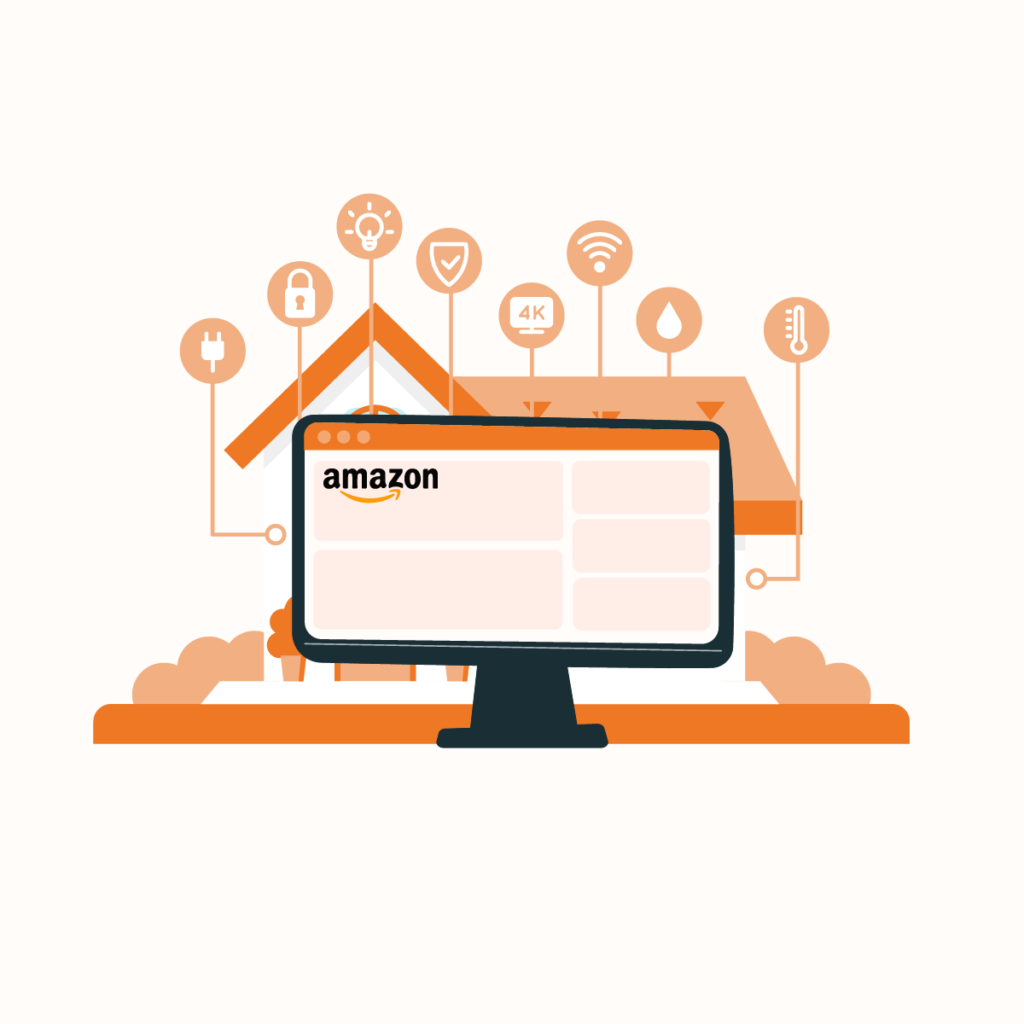Scraping Amazon for reviews, products, price changes, trends – So many to be scraped, and so little time!
Lucky for you, we gathered our top practices on scraping Amazon using residential proxies.
Some are well-known practices, but hey, you might learn a thing or two.
First, let’s level for a sec:
What is Web Scraping?
Web scraping refers to gathering information using various methods across the internet. It is a form of data mining, referred to as screen scraping, web data extraction, or web harvesting. A web scraper is generally a bot or an automated script that makes calls to websites and collects data.
The scraping process is done with two parts, known as the crawler and the scraper, where the crawler (spider) leads the scraper across the internet to extract data.
Web scraping is usually practiced for selling the collected data to other users or for promotional purposes on web pages. Although certain websites restrict certain types of data mining, it has become a popular method of collecting data.
Why Is It Essential to Use Proxies for Web Scraping?
There are many benefits of using proxies to scrape data. Some of them are described below:
- Using a proxy will enable you to crawl a web page more reliably. Also, it gives the upper hand for a spider to remain without getting blocked or banned.
- A proxy allows you to make requests based on specific geographical locations, allowing you to view the content of a website that is specified for a region. Therefore, it is a great benefit to scrape product details from online retailers.
- A large proxy pool is necessary to make a high number of requests to a target website such as Amazon, so your IPs won’t get banned.
Using Proxy Pools
Using a single IP address or a single proxy for scraping Amazon data can downgrade your scraping performance, crawling reliability, the number of simultaneous requests you can make, and the Geo-targeting options could decrease.
Due to this fact, a pool of proxies that will split the amount of traffic up across a large number of proxies is required to achieve the best results of scraping data.
There are some factors that the size of the proxy pool may depend on:
• The number of requests that you should make per hour.
• The target websites – a larger pool of proxies will be required to scrape data from websites with advanced anti-bot countermeasures.
• The type of proxies that you use – data centers, mobile or residential IPs.
• The sophistication of your proxy management tool – session management, proxy rotation, throttling, etc.
• The quality of IPs you use as proxies, whether they are data center, mobile, or residential IPs.
The quality of datacenter IPs can be much lower than the quality of residential IPs and mobile IPs. However, when observed in a standard P2P network, datacenter IPs are more stable than the other two types.
When observing a direct ISP connectivity proxy network – Residential proxies are “mimicking” the role of datacenters for their stability, but with a higher anonymity level that residential IPs are known for.
Different Types of Proxy IPs
There are three main types of IPs you can choose from. They are discussed as follows;
Datacenter IPs
These are the most common type of proxy IPs that can be used. The servers delivering these types of IPs are housed in data centers, hence the name. Datacenter IPs are the least expensive type of proxy IP available.
Residential IPs
Residential IPs are the IP addresses of private residences. They allow your requests to be routed across a private network. Since this article focuses on residential proxies, we will learn more about the types of those IPs in the next section.
Mobile IPs
Mobile IPs are the private IP addresses of mobile devices. Obtaining these types of IPs can cost a lot as it uses another mobile user’s IP for web scraping.
Proxies can be categorized as public, shared, or dedicated as well. In a summarized way, public or open proxies are not safe to be used as anyone can use them. Therefore, your IPs will be banned quickly and easily. In order to attain high-quality performance with a larger proxy pool, a dedicated proxy is the best option.
Using Residential Proxies for Scraping Amazon
If while scraping Amazon you’ve raised some flags (Amazon detects a bot), it will start to feed you false information, which will make your marketing analysis useless and misleading. Residential proxies are essential because they provide anonymity while scraping Amazon data, making it challenging to get blacklisted, unlike datacenter proxies. Let’s find out the features of residential proxies that help for scraping Amazon efficiently.
• Location targeting – This allows you to harvest Geo-specified pricing from Amazon; even shipping price data can be harvested easily.
• Rotating proxies – With thousands of requests sent by your scraper, it is essential to send each request with a unique IP.
The proxy IP will be rotated for each connection with a rotating proxy server.
Moreover, purchasing a proxy pool alone won’t help you in scraping data. You should know how to manage your proxies as well. You can learn about the benefits of our other proxy services to see which offering is the best fit for your needs.
There are a few factors that you should keep in mind:
• User-agents management is a crucial factor for better scraping results.
• Randomize delays to stay undetected while scraping Amazon.
• Test for scraping and proxy issues.
A better solution for scraping Amazon
NetNut offers a premium proxy solution and provides faster proxy speed with a dynamic network for additional scalability boosts.
Use rotating residential IPs from worldwide locations
and start scraping Amazon efficiently and safely.





